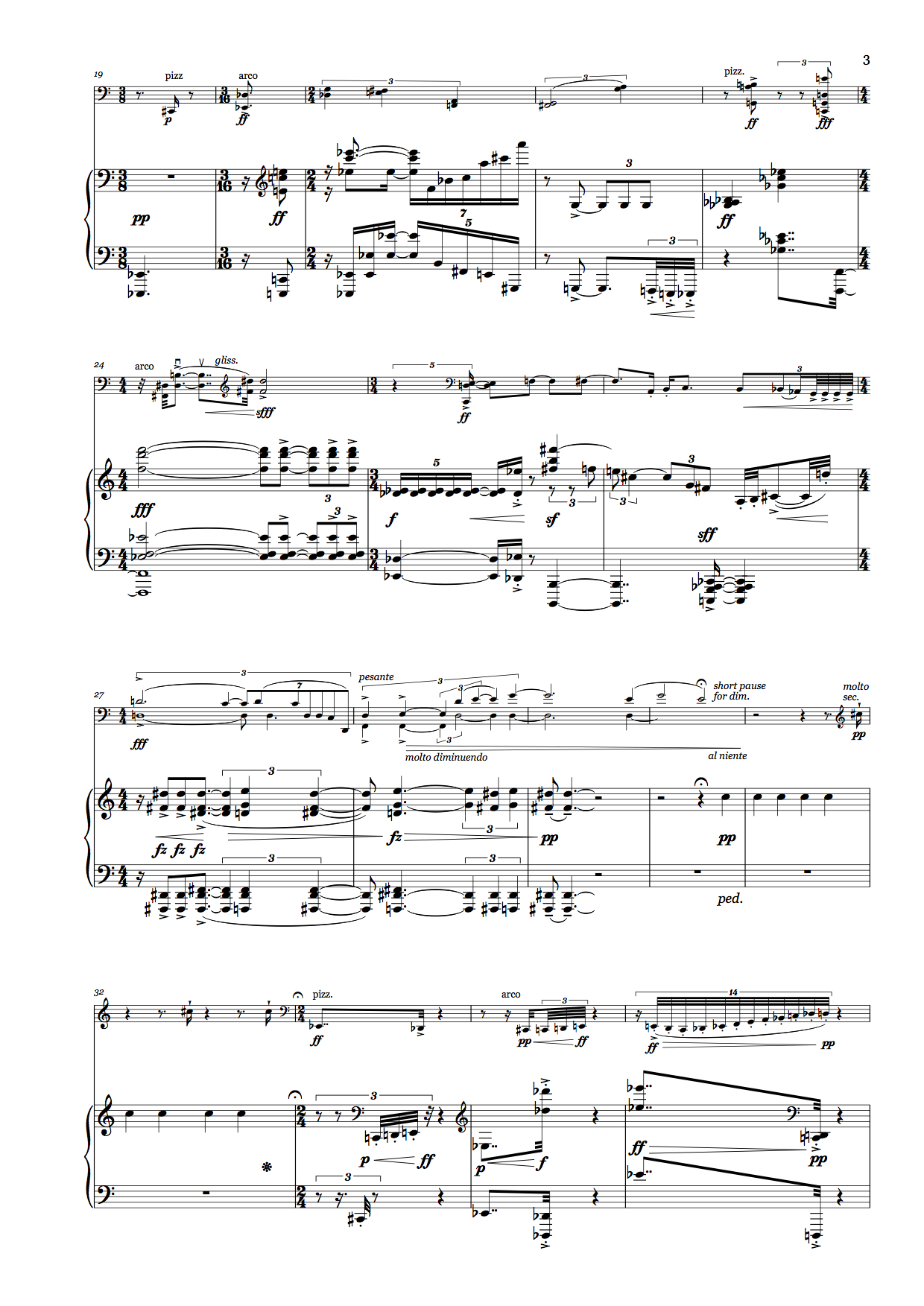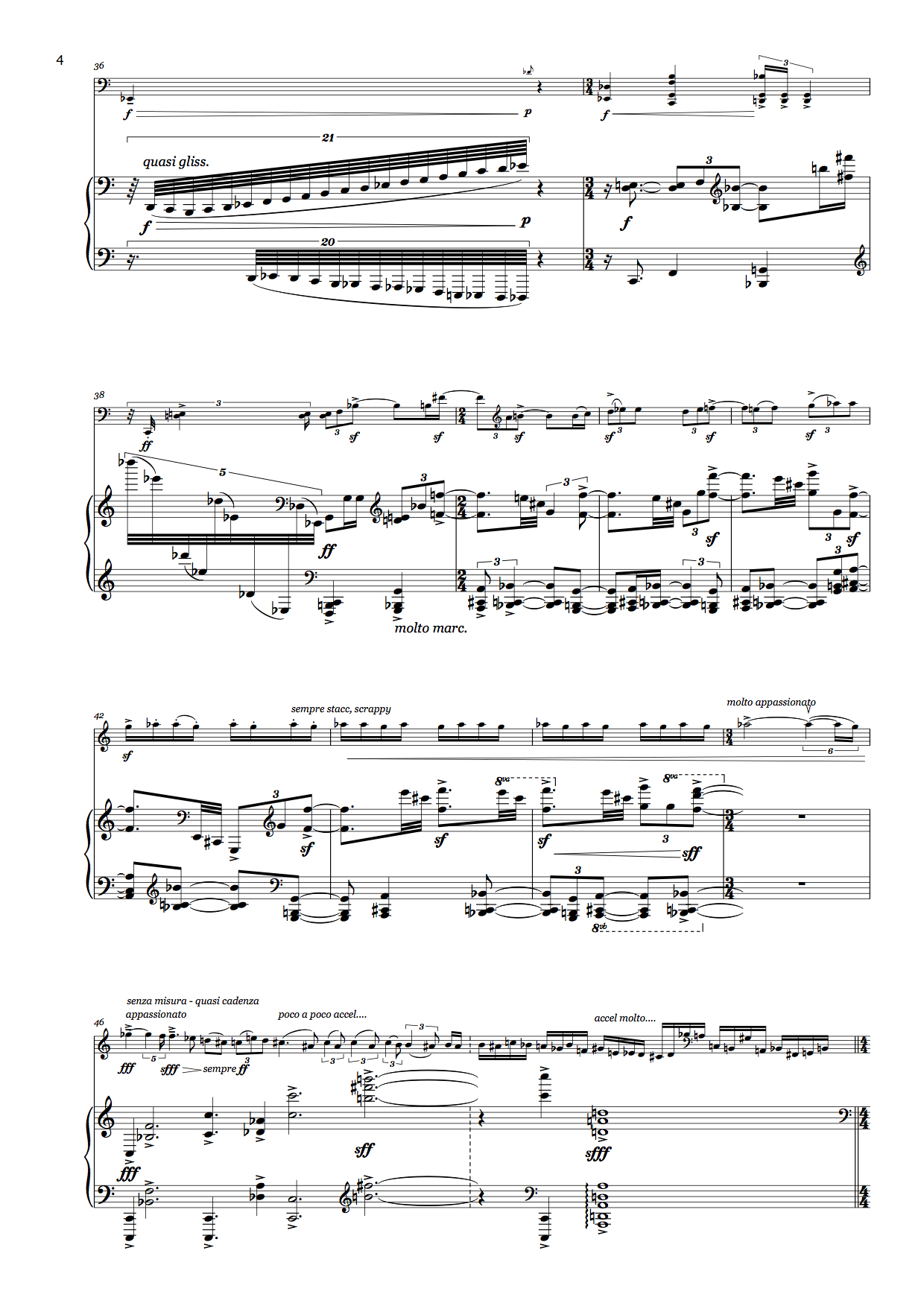This work has two movements:
- Generally moving forward
- Generally holding back
I continue to be preoccupied by time and structure and their roles in my compositions, rather than what the notes are and what I do with them. I don’t really see myself as writing notes, but rather creating events which, for the moment anyway, are expressed via a performer playing notes. I feel strongly that the idea of writing new musical ideas or new sounds, with our old 12 tones, is almost impossible, but the way they are presented in time is seemingly limitless. I find that pleasantly ironic because in life you can do things your own way but ‘time and tide wait for no man’. I suppose this is one of the reasons I like music.
The issue of form in musical performance is of course bound up with the temporal. But I don’t really like music to ‘move’ anywhere, and instinctively recoil from the idea of ‘something happening’ or concepts of ‘growing’ or ‘a journey’ in relation to music. On the other hand I like endings, and I like music to conclude – and its difficult to have a conclusion without something happening.
We know music unfolds in time – but that doesn’t mean all music does. If we whistle a tune, it takes a certain time to complete, but – as Birtwistle has suggested – can’t one experience a whole piece in a single moment and sensation, rather than as something which happens from A to B? Maybe actual time can operate in a similar way, with events taking place in time whilst somehow already being in completion. In what sort of place would that be possible? Maybe as close as in our heads: my dreams can be almost unbearably powerful, but they exhibit no concept of time, precious little structure to speak of, and certainly no beginning, middle and end. I wonder if music can be like that. I haven’t done a survey to this end, but we might observe that these days fewer people experience music in time, as internet playlists make one piece of music a drop in a seeming ocean of similar ones, streaming perpetually – or timelessly. That’s bad for intellectual property rights, but I find it good for the imagination.
I am very grateful to Charles Watt for both commissioning and performing this Sonata, and I am honoured to dedicate it to the memory of Charles’ father, James Watt, who stepped out of wordly time in February 2018.
Browse:
Browse the opening pages of the printed score. To purchase a copy please email [email protected]
Back to list of works



